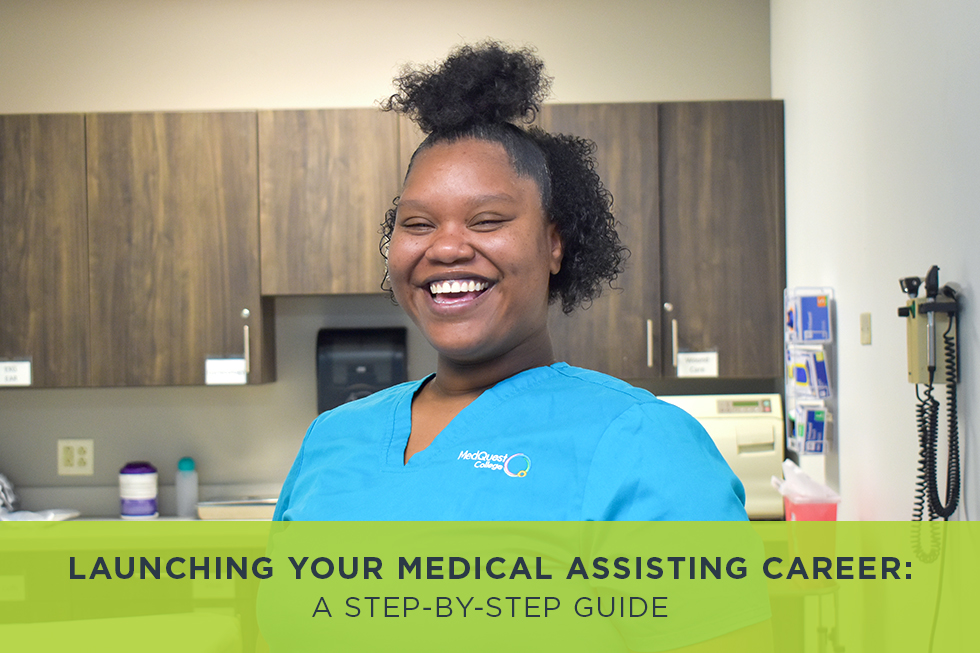Embarking on a career in medical assisting is a fantastic choice for those looking to make a positive impact in the healthcare field. Medical assistants play essential roles in both clinical and administrative settings, providing valuable support to doctors and caring for patients.
We’ll walk you through the steps needed to get started, from education and certification to landing your first job.
Step 1: Understand the Role of a Medical Assistant
Before starting any new career, it’s crucial to understand the job duties and responsibilities involved. Medical assistants typically perform administrative and clinical tasks, such as scheduling appointments, maintaining patient records, drawing blood, and preparing patients for exams.
Why Choose Medical Assisting?
The role offers opportunities to work directly with patients and healthcare professionals. The diversity of tasks means no two days are alike, which can keep the job engaging.
Step 2: Complete a Medical Assisting Program
You’ll need formal training to kick off launching your Medical Assisting career. Most employers require that medical assistants complete a recognized program, which typically includes courses in anatomy, medical terminology, clinical procedures, and administrative skills.
Types of Programs Available
- Certificate Programs: Often lasting 9 to 12 months, these programs are designed for those seeking quick entry into the workforce.
- Associate’s Degree Programs: These programs are more comprehensive and last 18 to 24 months. They may cover additional topics like specialized clinical practices and advanced administrative skills.
Both options will prepare you for entry-level positions.
Step 3: Gain Hands-On Experience Through Externships
Many medical assisting programs include externship opportunities, where students get real-world experience working in healthcare settings. Externships allow you to practice clinical skills like drawing blood, taking patient vital signs, and assisting doctors with exams. This hands-on experience is invaluable, as it prepares you for the job and provides an opportunity to start building a professional network.
Step 4: Consider Earning a Certification
While not always required, certification can significantly enhance your job prospects. Becoming a Certified Medical Assistant (CMA)® or Registered Medical Assistant (RMA) shows potential employers that you have a solid foundation of knowledge and skills.
Popular Certifications:
- Certified Medical Assistant (CMA)® – Offered by the American Association of Medical Assistants (AAMA).
- Registered Medical Assistant (RMA)® – Offered by the American Medical Technologists (AMT).
- Certified Clinical Medical Assistant (CCMA)® – Provided by the National Healthcareer Association (NHA).
Most certifications require completing an accredited medical assisting program and passing an exam. Certification demonstrates commitment to your profession.
Step 5: Build a Strong Resume and Cover Letter
Your resume and cover letter are your first opportunities to make a great impression on potential employers. Here’s how to craft an impressive application:
– Highlight Your Education and Certifications: List your medical assisting program, any certifications you’ve earned, and relevant coursework or externships.
– Focus on Relevant Skills: Include clinical and administrative skills, such as patient interaction, medical coding, and proficiency with electronic health records.
– Use Strong Action Verbs: Words like “assisted,” “prepared,” “administered,” and “recorded” help emphasize your hands-on experience.
Your cover letter should introduce yourself, explain your interest in the role, and highlight why you would be a valuable addition to the healthcare team.
Step 6: Apply for Medical Assisting Positions
With your education, externship experience, and certifications, it’s time to start applying for jobs. Medical assistants are needed in various settings, including:
– Private Practices: Smaller offices that often allow you to build relationships with patients.
– Outpatient Care Centers: For those who prefer working with patients who do not require hospital stays.
– Specialty Clinics: Such as dermatology, cardiology, or pediatrics, allowing for more focused work.
Consider reaching out to facilities where you completed externships, as they are already familiar with your work.
Step 7: Ace the Interview
The interview is your chance to demonstrate that you’re the right fit for the role. Here’s how to prepare:
- Research the Facility: Understand the clinic’s mission and any specialty areas. This will help you connect your skills to their needs.
- Prepare for Common Questions: Expect questions about your experience with patients, how you handle stressful situations, and your familiarity with medical equipment or procedures.
- Practice Demonstrating Clinical Skills: Some interviews may ask you to demonstrate skills like taking blood pressure or interacting with patients professionally.
Emphasize your empathy, organizational skills, and ability to stay calm under pressure.
Step 8: Continue Learning and Growing in Your Career
Medical assisting is a career that requires continual learning. Healthcare is always evolving, and staying current with the latest practices and technologies can make you a valuable asset to any team. Consider these ways to expand your knowledge:
– Take Continuing Education Courses: Many certifying organizations require continuing education to maintain certification.
– Attend Workshops and Seminars: These events offer insights into new healthcare developments and can introduce you to new techniques.
– Seek Out Additional Certifications: Specialized certifications, such as Phlebotomy or EKG Technician, can expand your skill set and open new job opportunities.
Step 9: Embrace Career Advancement Opportunities
Starting as a medical assistant can lead to several potential career advancements, including roles such as office manager, clinical supervisor, or even transitioning into other healthcare roles, like nursing or health administration. For those passionate about patient care and interested in further education, medical assisting can be a stepping stone to more specialized positions within the healthcare field.
Launching Your Medical Assisting Career with MedQuest College
For those serious about launching your Medical Assisting career, MedQuest College provides comprehensive training programs designed to equip students with the skills needed to start their careers. MedQuest’s program offers hands-on experience, real-world externship opportunities, and dedicated support to help students every step of the way.
If you’re ready to take the first step toward a career in medical assisting, visit MedQuest College and learn more about our programs today!

